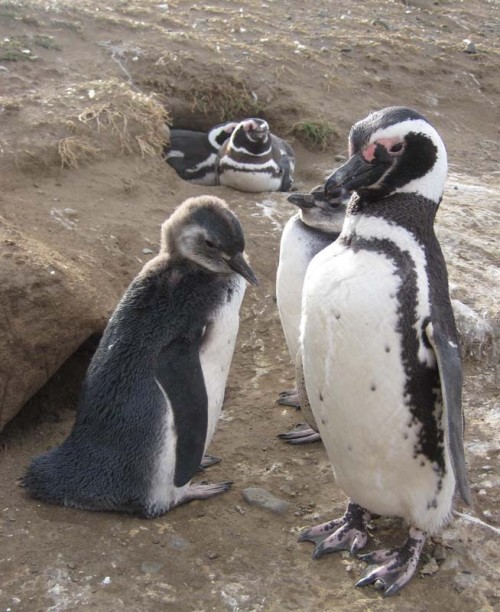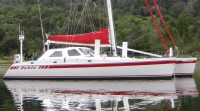
Exploring the World by Sail from A to Z
Jeff and Zia's adventures aboard the catamaran Hekla
12 January 2015 | 62 31'S:59 47'W, Antarctic Peninsual
09 January 2015 | 65 54'S:62 52'W, Antarctic Peninsual
07 January 2015 | 65 15'S:64 16'W, Antarctic Peninsual
04 January 2015 | 64 19'S:62 55'W, Antarctic peninsula
31 December 2014 | 54 48'S:68 19'W, Ushuaia
27 December 2014 | It's 6am must be Miami...
26 December 2014 | Guatemala
09 June 2013 | 17 35'N:80 42'W, Caribbean sea
06 June 2013 | Jamaica
04 June 2013 | 18 28'N:77 57'W, Montego Bay
02 June 2013 | 19 20'N:78 49'W, on passage Cayman-Jamaica
23 May 2013 | 19 43'N:82 58'W, south of Cuba, NW of Cayman
19 May 2013 | 24 34'N:81 49'W, Key West, Florida
30 April 2013 | 23 25'N:85 38'W, Gulf of Mexico
27 April 2013 | 21 15'N:86 45'W, Isla Mujeras
19 April 2013 | 18 17'N:87 50'W, Xcalak
17 April 2013 | 15 34'N:89 12'W, Lago Izabal, Guatemala
10 April 2013 | Rio Dulce
10 April 2013 | 15 39'N:88 'W, Rio Dulce
01 April 2013 | 16 05'N:88 32'W, Southern Belize
Reflections on Patagonia
06 February 2012
by Jeff

Reflecting upon our boating time in northern Patagonia, I like to describe it as an area of endless national parks adjacent to each other, displaying great natural beauty and rare human activity. The human density is extremely low, and therefore any sort of infrastructure, such as trails, roads, services. The brush is usually so thick that it is impossible to go anywhere on land without walking up the middle of a creek, though we have found an occasional trail hacked through the brush near some beautiful rivers. Though humans are rare, the sign of humans from generations ago are plentiful, in the form of deforestation. Loggers seeking timber for far away railroad projects or shipbuilding often burned large areas intentionally, clearing the brush but not destroying the heart of the straight and strong Cypress tree. Quite common are views of chest-high dense brush spiked with gray skeletons of scorched, majestic tree trunks. Wildlife is plentiful, particularly birds. Fro m Punta Arenas we took a ferry to a penguin colony island, where tens of thousands of Magellanic penguins were roosted in ground burrows raising their chicks. In about 7 weeks that island will be deserted of penguins until next spring.
Not many cruising boats come here. It is a difficult place to get to from most anywhere else in the world, and the conditions are challenging in many ways. Those that do make it, describe it as a long sought goal, richly rewarding, endearing beauty, and steeping in nautical history. Similar experiences might be found in southeast Alaska, Norway, or southern New Zealand. We speak daily on the long-range radio with the 20 or 30 boats strung out in the area from Cape Horn to out in the Pacific, still making their approach, thanks to a cruiser radio net operated by a sailor-turned-farmer living on the flanks of an inland volcano.
After our inland excursion, we collect some of our kids and begin our passage north together. We'll have about 3 weeks of sailing and preparations on the boat, before embarking upon the 12 or so day offshore journey to a different land, the Galapagos Islands, seeking adventure, team building, and an entirely new experience for most of the crew.
Not many cruising boats come here. It is a difficult place to get to from most anywhere else in the world, and the conditions are challenging in many ways. Those that do make it, describe it as a long sought goal, richly rewarding, endearing beauty, and steeping in nautical history. Similar experiences might be found in southeast Alaska, Norway, or southern New Zealand. We speak daily on the long-range radio with the 20 or 30 boats strung out in the area from Cape Horn to out in the Pacific, still making their approach, thanks to a cruiser radio net operated by a sailor-turned-farmer living on the flanks of an inland volcano.
After our inland excursion, we collect some of our kids and begin our passage north together. We'll have about 3 weeks of sailing and preparations on the boat, before embarking upon the 12 or so day offshore journey to a different land, the Galapagos Islands, seeking adventure, team building, and an entirely new experience for most of the crew.
Comments
| Vessel Name: | Hekla |
| Vessel Make/Model: | Atlantic 57, Chris White Designs |
| Hailing Port: | Fort Collins, Colorado, USA |
| Crew: | Jeff Lebesch, Zia Zybko |
| About: | Jeff has been sailing for 11 years, and has completed two singlehanded TransPac races on his former trimaran Hecla. Zia is enthusiastic about adventure-exploration by sail |
Gallery not available
S/V Hekla

Who: Jeff Lebesch, Zia Zybko
Port: Fort Collins, Colorado, USA
Contents
hiccup